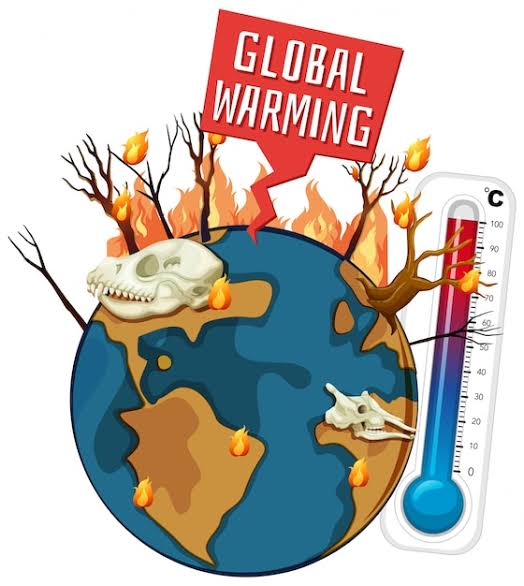Environment Desk
27 May
Sandeep Dhand Ludhiana
Global warming, the long-term rise in Earth’s average surface temperature, is an urgent issue demanding global attention. Over the past century, human activities, particularly the burning of fossil fuels, deforestation, and industrial processes, have significantly increased concentrations of greenhouse gases like carbon dioxide (CO2), methane (CH4), and nitrous oxide (N2O) in the atmosphere. This increase has led to a warming effect, which is altering weather patterns, raising sea levels, and impacting ecosystems worldwide.
The Science Behind Global Warming
The Earth’s climate system is influenced by the balance between incoming solar radiation and outgoing infrared radiation. Greenhouse gases trap some of this outgoing radiation, retaining heat and warming the planet’s surface – a process known as the greenhouse effect. This effect is natural and necessary for life, keeping the Earth’s temperature at a habitable level. However, human activities have amplified this effect, leading to higher global temperatures.
Since the late 19th century, the planet’s average surface temperature has risen by about 1.2 degrees Celsius (2.2 degrees Fahrenheit), with most of this warming occurring in the past four decades. This rapid increase in temperature is unprecedented in the context of Earth’s geological history, where natural climate variations typically occur over millennia.

Impacts on the Environment
The consequences of global warming are profound and far-reaching. Melting polar ice caps and glaciers contribute to rising sea levels, which threaten coastal communities with flooding and erosion. According to the Intergovernmental Panel on Climate Change (IPCC), global sea levels have risen by about 20 centimeters (8 inches) since 1900, with the rate of increase accelerating in recent decades.
Warming temperatures also disrupt weather patterns, leading to more extreme and unpredictable weather events. Heatwaves, droughts, and intense storms are becoming more frequent and severe, posing risks to human health, agriculture, and infrastructure. For instance, the 2020 Australian bushfires, exacerbated by prolonged drought and high temperatures, devastated millions of acres of land and killed or displaced nearly three billion animals.
Effects on Biodiversity
Global warming affects ecosystems and biodiversity by altering habitats and migration patterns. Species that cannot adapt quickly enough to changing conditions face increased risks of extinction. Coral reefs, which are highly sensitive to temperature changes, are experiencing widespread bleaching events. These reefs are vital to marine biodiversity, providing habitat and food for a vast array of ocean life.
Economic and Social Implications
The economic and social implications of global warming are equally significant. Agriculture, which relies on stable climate conditions, is already feeling the strain of shifting weather patterns. Crop yields are becoming more unpredictable, threatening food security, particularly in developing countries that are less equipped to adapt.
Moreover, the displacement of people due to rising sea levels and extreme weather events is leading to a new category of refugees known as climate migrants. This mass displacement can exacerbate social tensions and pose challenges for national and international security.
Mitigation and Adaptation
Addressing global warming requires both mitigation and adaptation strategies. Mitigation involves reducing greenhouse gas emissions through cleaner energy sources, increased energy efficiency, and reforestation efforts. The Paris Agreement, adopted in 2015, aims to limit global warming to well below 2 degrees Celsius, with efforts to keep it below 1.5 degrees Celsius, compared to pre-industrial levels.
Adaptation, on the other hand, involves making adjustments to social, economic, and environmental practices to minimize the damage caused by climate change. This includes building resilient infrastructure, developing drought-resistant crops, and improving disaster preparedness.
Conclusion
Global warming is one of the most pressing challenges of our time demanding immediate and sustained action from all sectors of society. By understanding the science behind it and recognizing its impacts, humanity can take the necessary steps to mitigate and adapt to this evolving crisis, ensuring a sustainable future for generations to come.
